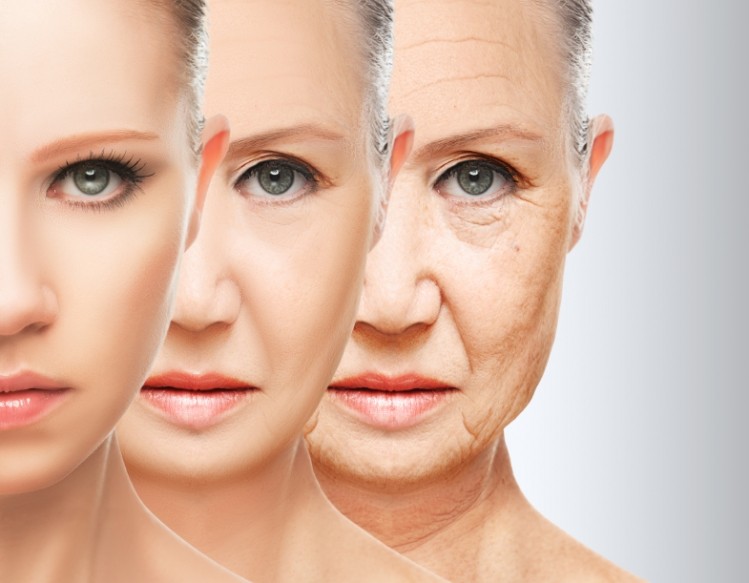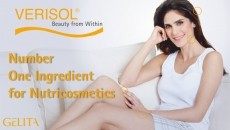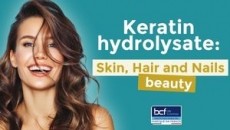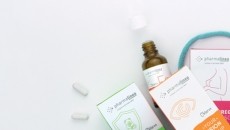Lycopene, lutein supplements show skin protection from within against UV radiation

The study’s findings, published in the British Journal of Dermatology, indicated that oral supplementation with the carotenoids changed the expression of genes that are indicators of oxidative stress, photo-dermatoses and photo-aging.
“To the best of our knowledge we show here for the 1st time that (i) tomato nutrient complex as well as lutein do not only protect healthy human skin against UVB/A, but also against long wave UVA1 radiation, and (ii) that oral photo-protection of healthy human skin can be demonstrated at the level of HO-1, ICAM-1 and MMP-1 gene expression,” wrote researchers from IUF - Leibniz Research Institute for Environmental Medicine in Dusseldorf.
Heme oxygenase-1 (HO-1), intercellular adhesion molecule-1 (ICAM-1) and matrix metalloproteinase-1 (MMP-1) are reported to be UVA1/UVB radiation-inducible genes.
Anti-aging
The supplements used in the study were provided by Israel’s Lycored, and the company funded the study.
Lycored’s Karin Hermoni, PhD welcomed the study’s findings, stating: “This study suggests that we are slowing down the aging process, because it prevents the damages caused by UV exposure, including expressions of genes that are biomarkers for skin photo-aging, and oxidative stress on the skin.
“On top of that, as part of the photo-aging process we have evidence of the effect of our ingredients on the levels of expression of genes involved in collagen degradation, suggesting a link not only to skin health but also to skin appearance. This study suggests an effect of natural antioxidants on overall skin wellness, which is relevant for men and women in all age groups.”
The beauty-from-within and anti-aging supplements category has been stop start over the years, with experts citing a combination of reasons, including poor in-store product positioning (in the supplements aisle versus next to other beauty products, packaging that doesn’t appeal to the cosmetic shopper, and the challenge of ‘seeing is believing’ for the potential benefits (nutritional interventions manifest benefits slower than topicals).
The category is growing, however, with data from Euromonitor International estimating the value of beauty supplements to be $2.9 billion in 2015, with the US market valued at $76 million. The category is reportedly growing at greater than 10% in the US, albeit from a small base.
Study details
The new study included 65 healthy volunteers aged between 18 and 60. The participants were randomly assigned to randomly consume 20 mg per day of the tomato nutrient complex or placebo for 12 weeks, or 20 mg per day of lutein or placebo for 12 weeks. A two-week washout period separated the placebo and active intervention periods. At the beginning and at the end of each phase the skin was irradiated.
Results of the placebo-controlled, double blinded, randomized cross-over study indicated that the tomato nutrient complex (TNC) totally inhibited the upregulation of HO-1, ICAM-1 and MMP1 mRNA by both UVA1 and UVA/B.
On the other hand, lutein only completely inhibited gene expression if taken during the first 12 weeks (ie. prior to placebo), while a significantly smaller effect was observed if it was taken during the second 12 week phase (ie. after placebo), compared to TNC.
“The precise mechanism through which lycopene and lutein inhibit UVA1 radiation-induced gene expression is currently not known but most likely involves anti-oxidative mechanisms,” wrote the researchers.
“These findings are of obvious clinical relevance because UVA1 radiation is well known to contribute to photo-aging and photocarcinogenesis in healthy human skin and to be an important trigger for the most frequent photodermatosis, i.e. polymorphous light eruption,” they added.
“In this regard it is of interest that the genes which we found to be reduced in their UVA1 inducibility are critically involved in these pathological conditions. Therefore, we suggest that oral supplementation with lycopene-rich TNC and with lutein may be efficient in inhibiting UVA1 radiation-induced oxidative stress responses in general and gene regulatory events involved in photoaging, photocarcinogenesis and photodermatoses specifically.”
Source: British Journal of Dermatology
Published online ahead of print, doi: 10.1111/bjd.15080
“Molecular evidence that oral supplementation with lycopene or lutein protects human skin against ultraviolet radiation: Results from a double-blinded, placebo-controlled, cross-over study”
Authors: S. Grether-Beck, et al.














